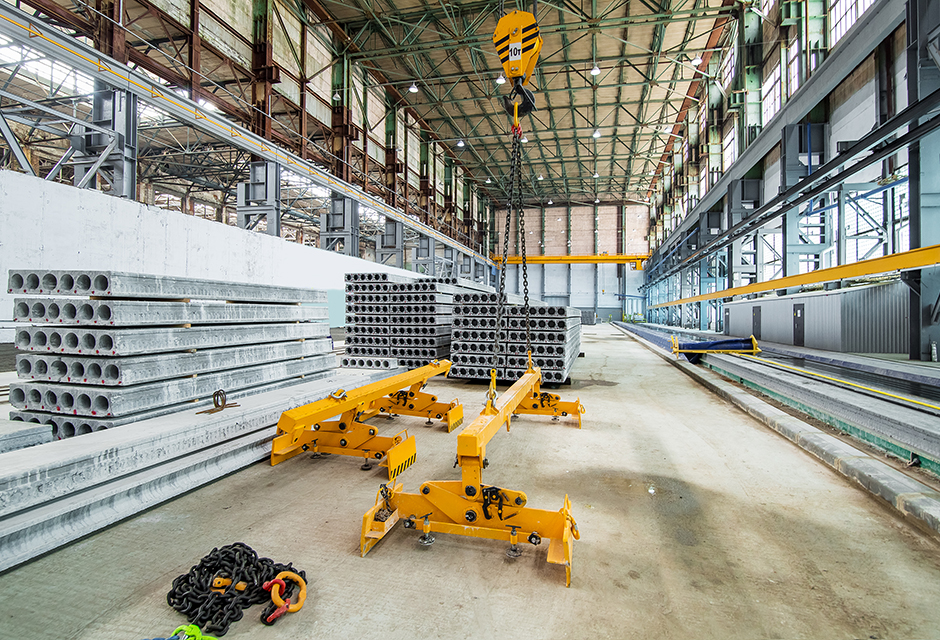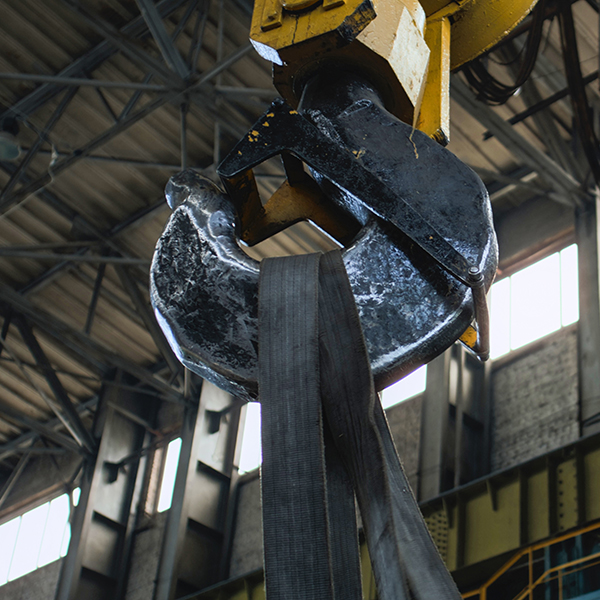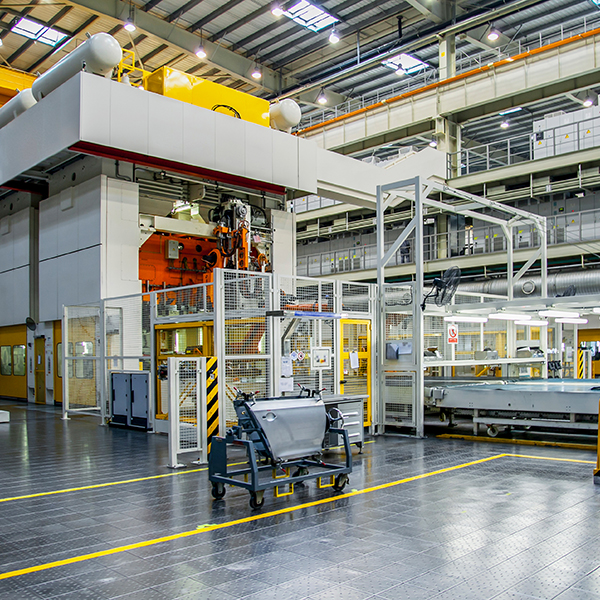
WHAT IS INDUSTRIAL CONTRACTING?
Industrial contracting refers to construction and engineering services performed in industrial environments like factories, manufacturing plants and distribution centers. These services are typically more complex than commercial contracting due to the scale, safety requirements and integration with critical systems.
Typical industrial contracting services might include:
- Rigging and machinery moving
- Foundation and structural concrete
- Electrical and mechanical installations
- HVAC and piping
- Building press pits or raising facility roofs
- Plant relocation and equipment reinstallation
These are complex tasks that involve much more than mere physical execution – they require strong planning and experience in how each system interacts with others. Industrial contracting services often take place in manufacturing environments with heavy machinery and must account for operational downtime, safety hazards and highly specialized equipment.
HOW TO CHOOSE THE RIGHT
INDUSTRIAL CONTRACTING COMPANY
One of the most effective ways to avoid the pitfalls above is to work with a self-performing industrial contracting company with many years of experience. “Self-performing” means just one industrial contracting firm manages and performs the entire project, from planning and engineering to installation and commissioning.
The In-House Advantage
Companies like Lee Industrial Contracting self-perform across all trades, from engineering to fabrication to foundations and more. This model gives you better coordination, faster project timelines and improved quality control across every step.
One Point of Contact
With a single project manager overseeing all industrial contracting services, communication is much simpler. You avoid finger-pointing between subcontractors and gain a team that’s 100% aligned on schedule and scope.
Cost Control
By reducing markup costs from subs and rentals, in-house industrial contracting teams offer more predictable pricing. Owned equipment and trained personnel mean fewer surprises.
Faster Timelines
Self-performing contractors can coordinate schedules, shift resources and resolve issues faster than traditional general contractor-led models. This is especially critical in heavy industrial contracting, where production delays carry serious cost implications.

Questions to Ask an Industrial Contracting Company
- Will all of the people working on the project be your direct employees?
- Will you need to rent equipment for the job or do you own it?
- Do you maintain a tools and supplies inventory large enough to complete this project?
- Can you provide five company references and example projects that demonstrate you are a true self-performing contractor?
- How many people from each trade will you be using on this project? Will you be sub-contracting out any of these trades?
- Have you ever managed a project like mine? What were the outcomes?

Effective Problem-Solving Strategies
When addressing difficult industrial contracting challenges, our experts recommend you keep these tips in mind:
- Know your resources and identify team experts.
- Utilize historical data from similar projects to provide insights on the current project.
- Build strong customer relationships through transparency and collaboration.
VALUE ENGINEERING FOR BETTER PROJECT OUTCOMES
Value engineering is a process used to optimize function while reducing cost. Within industrial contracting services, that might mean using a more efficient construction method, substituting materials or finding a faster installation path – all without sacrificing safety or quality.
Lee Industrial Contracting builds value engineering into every phase of the project lifecycle. When clients bring us in early, we can suggest alternatives that deliver the same or better results at a lower cost.
For example, our customer hired us to do a complete demolition to fit a piece of equipment, but our value engineering assessment helped us shift plans to a partial roof raise to create necessary machine space while allowing continued operations and condensing the timeline.
By treating value engineering as a mindset, and not just a step, we help plant managers control costs, reduce timelines and make smarter long-term investments.
CURRENT TRENDS IN INDUSTRIAL CONTRACTING
The industrial contracting sector is constantly evolving with new trends affecting approaches to construction, maintenance and facility upgrades. Here are a few to look out for:
Automation and Robotics
Automation and robotics are seeing increasing adoption in manufacturing plant construction and operations. Innovations like automated guided vehicles (AGVs) transform material handling without human drivers, while advanced automation equipment handles tasks like welding and inspections. This shift allows workers to focus on complex tasks, increases safety and accelerates timelines.
Upskilling Labor
The persistent labor shortage in heavy industrial contracting is prompting companies to upskill their current workforce rather than just seek new talent. Many industrial contracting companies now offer specialized training programs to close skill gaps, particularly in technology-driven roles. Apprenticeships and skill-building initiatives help attract and develop necessary talent.
Data-Driven
Decision Making
Advanced data analytics applications enable more accurate cost estimates, real-time adjustments and proactive risk assessments in industrial contracting. These capabilities reduce delays while improving budgeting, resource allocation and scheduling.
Modular and Offsite Construction
Offsite construction methods are gaining popularity as manufacturers and industrial contracting companies seek faster, less disruptive solutions. Modular approaches, such as constructing building components offsite for onsite assembly, offer greater quality control and resource efficiency, especially for space-limited sites.
SUMMING IT UP
Navigating the world of industrial contracting requires careful planning, strategic partner selection and staying on top of industry trends. Whether you’re undertaking manufacturing plant construction, implementing heavy industrial contracting projects or managing commercial contracting work, the principles outlined in this guide give you a framework for success.





